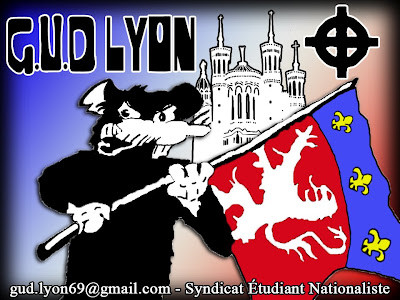I just finished a book titled Moral Capital by Christopher Leslie Brown on the movement to abolish the slave trade and then slavery itself in the British Empire. The take home message is that the abolitionist movement thrived on moral capital. Even by 1790, popular opinion was persuaded that slavery was immoral, although it took quite a bit longer to actually abolish the slave trade (1807)and even longer to abolish slavery itself (1833) because British political institutions were far from democratic during this period.
If it’s one thing that White advocacy lacks in the minds of most people, it’s moral capital (although this is completely unjustified). On the other hand, the Holocaust is nothing if not a storehouse of moral capital for Jews—useful as a sword and a shield to attain Jewish interests on behalf of Israel and throughout the Diaspora in the West. So when Stephen Hawking said he would respect the academic boycott of Israel and would not attend the Presidential Conference in Israel hosted by Shimon Peres, it was a big story indeed. The Israeli right was apoplectic.
Questioning the moral capital of Jews is deadly serious because a huge part of the image of Jews projected by the media is that indeed Jews have made tremendous contributions to civilization. Therefore, non-Jews should welcome Jewish efforts to advance their interests even when they conflict with their own interests or with basic human rights that Jews insist on for themselves, whether in Israel or in the Diaspora.
I rather doubt that the fact that the Germans have made tremendous contributions to civilization counts much with Jewish activists whose first interests naturally are the defense of their fundamental interests as a people. It should be the same with non-Jews.
But despite their best efforts, Israel’s moral capital is fast approaching zero. Charles Freeman again:
Despite an ever more extensive effort at hasbara – the very sophisticated Israeli art of narrative control and propaganda – it is hardly surprising that Israel’s formerly positive image is … badly “fraying.” The gap between Israeli realities and the image projected by hasbara has grown beyond the capacity of hypocrisy to bridge it. Israel’s self-destructive approach to the existential issues it faces challenges the consciences of growing numbers of Americans – both Jewish and non-Jewish – and raises serious questions about the extent to which Israel supports, ignores, or undermines American interests in its region. Many have come to see the United States less as the protector of the Jewish state than as the enabler of its most self-injurious behavior and the endower of the many forms of moral hazard from which it has come to suffer.
The problem for Whites is that even though Israel’s decreasing of moral capital is a problem for Jews, it does nothing for the interests of Whites. People like Stephen Hawking would be horrified at seeing any moral connotations to the idea that White people have legitimate interests in preserving their culture and themselves as a people.
Somewhat related parenthesis:
Here’s a panel discussion from St. Paul’s Cathedral in London where all agree that Whites have no interests as Whites—no one should care that Whites are now 45% of the population of London. While eschewing White interests, Peter Hitchens is the only one to propose that immigrants should even become British culturally. Giles Fraser (see also Francis Carr Begbie’s TOO article) touts his Jewish roots in an unabashed, utterly self-confident celebration of the utter unimportance of White interests.
We need moral capital for our side—that just as the Palestinians have legitimate ethnic interests that are compromised by Israel, there is a moral imperative for the preservation of our people, our land and our culture.
White people—uniquely, I think—care about moral rectitude. (Not all Whites, but this is the dominant trend, at least since the 18th century and the decline of aristocratic culture, as emphasized in Andrew Fraser’s The WASP Question [see also here, p. 14 ff].) Most Whites want to be members of morally defined ingroups—a reflection of our past as Northern hunter-gatherers. (Christopher Boehm describes hunter gatherer groups as “moral communities.”) In the societies of pre-historic Europe, ingroups were defined not on the basis of kinship which is the rule in the rest of the world’s great civilizations, but on the basis of adherence to the moral standards of the group. A recent archeological excavation of a 4600-year old site in modern Germany found evidence for exogamy and nuclear families, a strong indication that ingroups were not constructed on the basis of kinship/extended families.
Creating morally defined ingroups runs deep in Western culture, which is why the Jewish opponents of the West have fastened on moral critiques as an effective weapon. All of the intellectual and political movements discussed in The Culture of Critique (Kindle expanded edition now available) are essentially moral indictments of the West.
These movements tapped into moral sensibilities that have a long history in the West. It’s amazing to read the anti-slavery activists and theorists of the 18th century. At a time when slavery was unquestioned in the rest of the world and when slavery had clear benefits to the Empire as a whole, they argued that all humans were equal morally and intellectually; they were horrified that their countrymen were inflicting suffering on people from another continent. In an influential book published in 1784, the Rev. James Ramsay wrote, “I shall assert the claim of Negroes to attention from us, by explaining their natural capacity, and proving them to be on a footing of equality in respect of the reception of mental improvement, with the natives of any other country.” All peoples were equal, morally and intellectually. Ramsay also included descriptions of the brutal treatment of the slaves effectively designed to evoke empathy in his audience.
Another well-known 18th-century abolitionist, Quaker John Woolman, felt guilty because he preferred his own children to children on the other side of the world—a comment that reflects the sentiments of central players among the current British elite, as noted by a liberal critic of immigration policy:
When dining at an Oxford college … the eminent person next to me, a very senior civil servant, said: ‘When I was at the Treasury, I argued for the most open door possible to immigration [because] I saw it as my job to maximise global welfare not national welfare.’ I was even more surprised when the notion was endorsed by another guest, one of the most powerful ” television executives in the country. He, too, felt global welfare was paramount and that he had a greater obligation to someone in Burundi than to someone in Birmingham.
For such Whites, feelings for one’s own people are illegitimate and certainly not a basis for policy. White people are uniquely prone to concerns about their moral rectitude and uniquely universalist in their outlook. That’s why it’s so hard to get a large group of American Whites out on the street to protest the immigration bill currently being considered by Congress, even though their legitimate interests are being massively violated if the bill is passed: The movement to restrict immigration or end it altogether has no moral capital in the eyes of media and intellectual elites, and this message is continually pounded home. In a sane world, Washington, DC would be inundated with huge public demonstrations against this bill. There is definitely some push back against it, mainly on the basis that illegal immigrants should not be rewarded for violating the law—which would do absolutely nothing to stem the huge surge in the numbers of legal immigrants contained in the bill or stop the > 1 million yearly legal immigrants that would continue coming even if the bill is defeated.
But one never hears mainstream conservatives talk in terms of legitimate White interests. Indeed, even protesting illegal immigration is now portrayed by American elites as placing oneself outside the moral community.
So we have to keep pounding away at our message that Whites have interests that are morally legitimate. While the moral sentiments of the 18th- and 19th-century abolitionists were certainly sound, adopting an ideology of moral universalism amounts to suicide under the present conditions where migration over long distances is so easy. As noted in the comments on Paul Weston above, calling Whites “racist” for asserting their legitimate interests is an attempt to place their opponents in a morally illegitimate category. Such campaigns are uniquely effective in the West. Jews, for example, are remarkably immune to the charge, despite their erection of an apartheid society based on ethnic cleansing.
As Weston notes, the rhetoric of the culpability of Whites for past behavior is a central pillar of the multicultural onslaught against White Britain. But it’s never noted that Whites uniquely abolished slavery on moral grounds or that the importance of moral capital is a unique aspect of Western culture. However, despite its role in correcting the abuses of the past, the centrality of moral capital is now an integral part of the psychology of Western suicide.
A good sign is that the people I know who are on-page about White interests and identity do see a strong moral imperative in preserving our people and culture. Paul Weston’s video is a ringing declaration of the morality of White interests in defense of their people and culture. Often without a lot of conscious thought about it, there is a sense that we are a moral ingroup and we reject and shun those who hate us and our ideas. There is a lot of confidence that we are right; there is a sense of moral rectitude and an awareness of the hypocrisy (see above) and corruption of our enemies. And that is a very good start indeed.








